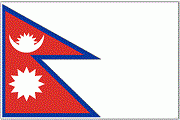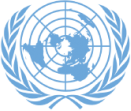Statement by Hon. Mani Chandra Thapa, Minister for Water Supply, at the High-level Meeting on the ‘Implementation of the Water-related Goals and Targets of the 2030 Agenda’
New York, 22 March 2021
Mr. President,
Excellencies,
Ladies and Gentlemen.
I begin by thanking you, Mr. President, for convening this meeting on water and sanitation, which is of paramount importance to all living beings.
The SDG 6 is an essential enabler to the realization of the 2030 Agenda for Sustainable Development. It is not least because water-related goals and targets are key foundations for quality health, poverty eradication, renewable energy, equal access to education, gender equality and human rights.
However, over 2.2 billion people still lack access to safely managed drinking water and 4.2 billion people lack proper sanitation. Water and sanitation-related stresses coupled with the crises such as climate change and the COVID-19 pandemic have further worsened the woes, which is more so in the poorest and most vulnerable countries.
Mr. President,
Nepal’s high mountains are water towers and custodians of ecosystems. The rivers emanating from them travel downstream unfolding an intrinsic hydrological link that binds over 1.5 billion people living in South Asia.
We are deeply concerned about the erosion of the health of our high mountains and hydro-scapes due to its organic link with biodiversity and the sea level rise. This must stop. We call for an urgent global action to address this problem.
Nepal prioritizes access to clean water and sanitation as fundamental services for people. We have integrated water and sanitation related goals and targets on periodic plans, Road Map to SDGs and the WASH Sector Development Plan (2016-2030), which are being implemented to ensure access to safe, adequate, and affordable drinking water and sanitation services to all by 2030.
Currently, over 90% of people have access to drinking water, while about 99% have access to basic sanitation facilities.
Nepal was declared an open defecation free country in September 2019.
We are effortful to address all forms of water pollution, prevent water-related disasters, and build resilience against climate change and graduate from the status of LDC to realize our national vision: ‘Prosperous Nepal, Happy Nepali’.
Mr. President,
Nepal commends the UN initiatives such as Water for Sustainable Development and SDG 6 Global Acceleration Framework and also underscores that climate action is critical to mitigate the adverse impacts on the SDG 6.
In conclusion, we are committed to intensifying our efforts to achieve the SDG 6 related goal and targets and look forward to working with all partners in the days ahead.
I thank you.


